Wondering About Your Dog’s Biggest First-Year Milestones? Well, this Guide is for your, Your dog will go from a helpless newborn to a full-grown adult in the span of just one year, so you need to be ready to cover a lot of milestones in a very short amount of time.
To let you know what to expect, we’ve rounded up 10 of your dog’s biggest first-year milestones, from adoption day to celebrate their first birthday.
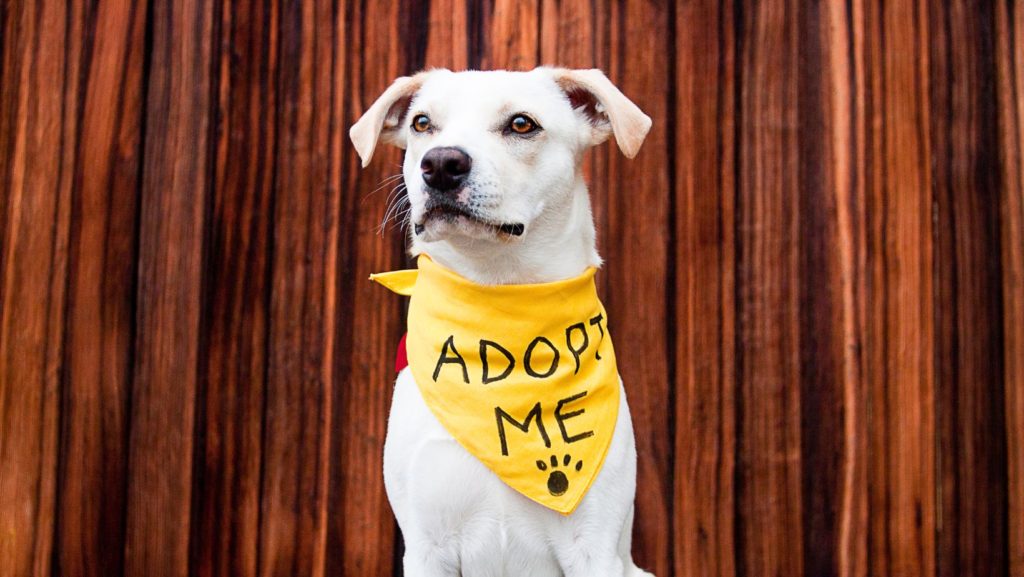
1) Adoption Day
The day you bring your puppy home is the first big milestone in your new life together! Puppies are usually ready to be adopted around eight weeks of age, once they are weaned off mom’s milk.
They should also have been dewormed twice before adoption in order to keep them healthy. Keep in mind that some breeders prefer to keep the dogs a little longer, until about 12 weeks, so they oversee the dogs during the critical learning period.

2) First Vet Visit & Vaccinations
You should establish a connection with a veterinarian soon because puppies need some attention right off the bat.
Vaccinations are usually administered to puppies at eight, 12, and 16 weeks of age to protect them from common diseases.
Flea, tick, and heartworm medication will also start at eight weeks and continue throughout their life.
The dosage for these medications varies by weight, so as your puppy grows, you will need to change the dosage according to your vet’s instructions.
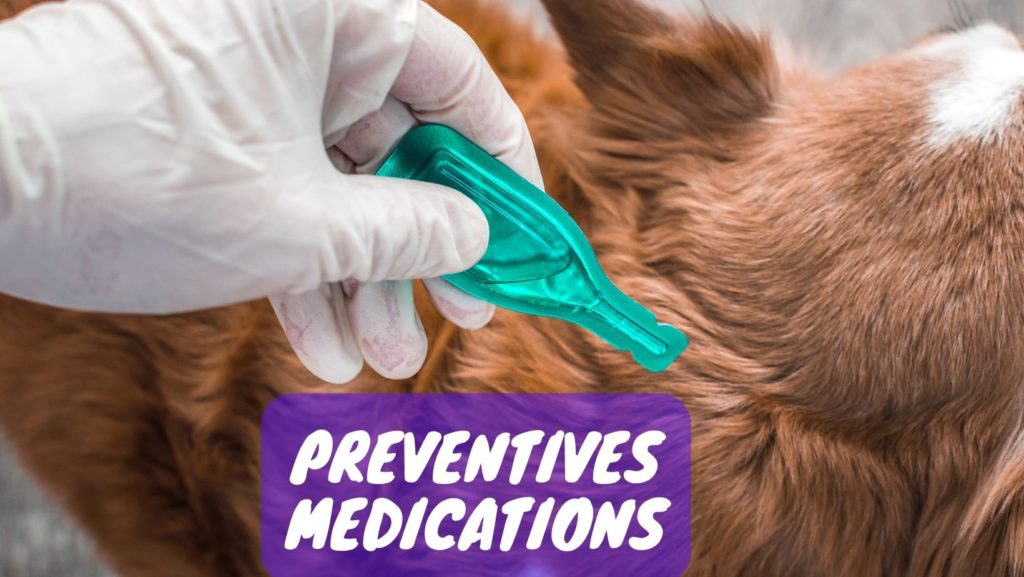
3) Preventives & Medications
Dogs need monthly flea, tick, and heartworm prevention medication. This medication is given year-round. They’re immunizations that protect your dog from life-threatening illnesses.
Your veterinarian will prescribe the appropriate dosing for your puppy as it grows.
A one-year-old puppy should have a blood test once a year to check for heartworm and Lyme disease.
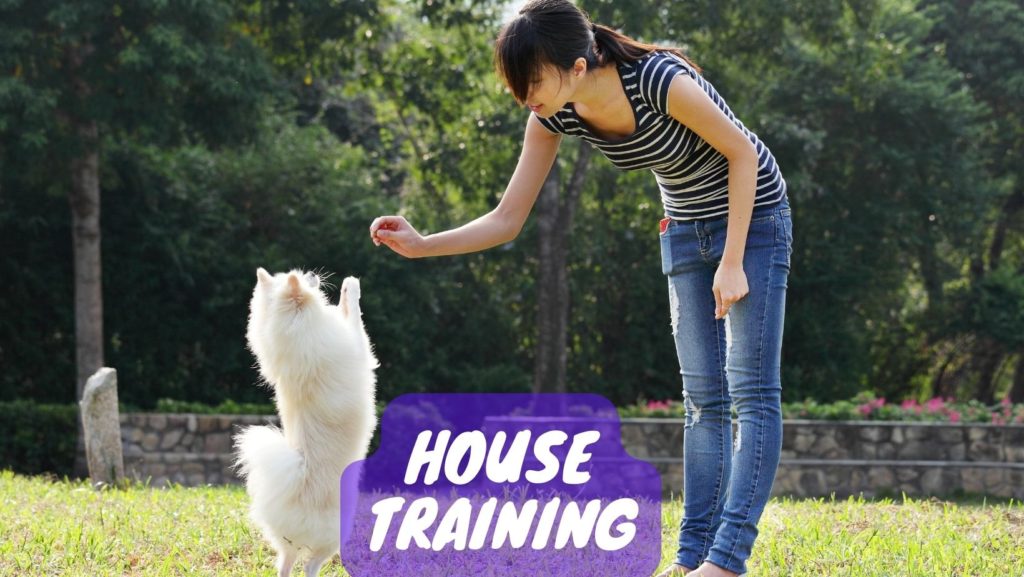
4) Basic/House Training
If you are consistent about house training, then your puppy should stop having accidents inside around the age of eight to 12 weeks and fully sleep through the night around 12-16 weeks.
If you have any setbacks, it will take a few more weeks to fully house train your dog.
Take your puppy outside on a regular schedule and wait outside until they use the bathroom.
Reward them with lots of praise (and the occasional natural dog treat) when they go outside or ask to be let-out.
Puppies are eager learners, and it is encouraged that you start training them soon after bringing them home.
It is never early enough to begin a training regimen, as puppies learn quickly and respond well to socialization and play.
Basic Potty training [8 to 12 Weeks]
If your puppy does have an accident inside, clean it up with a minimum of fuss so they don’t learn to associate peeing or pooping inside with getting attention.
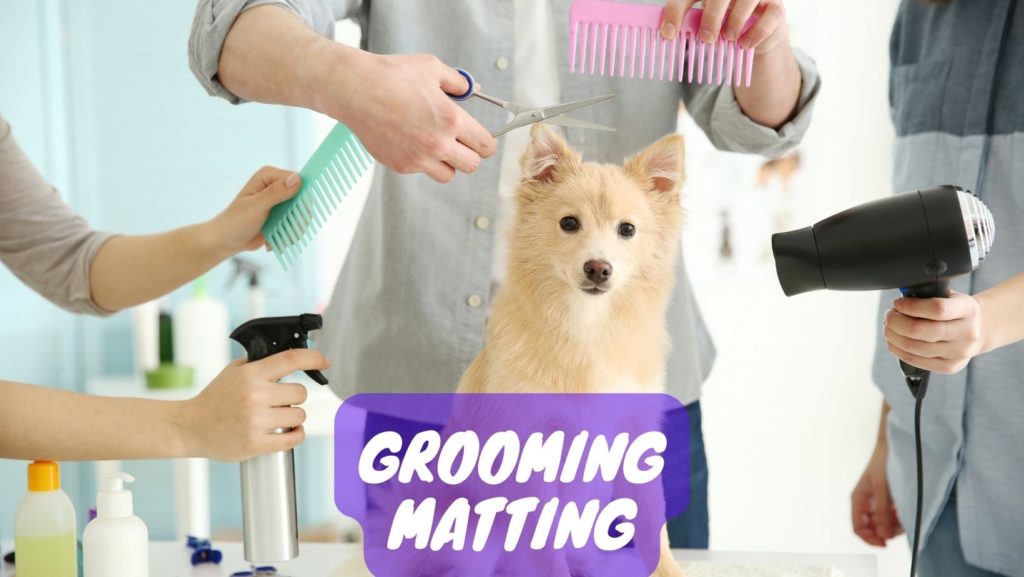
5) Grooming, Bathing & Matting
Bathing, brushing, and grooming help establish a good hygiene routine early on in your dog’s life. Always use gentle products for puppies and monitor for toxicity or sensitive skin.
Use a gentle puppy-safe shampoo, preferably tearless. Monitor your dog for any irritation, and bath them once a week or as needed. Groomers may trim the face, feet, and body of your dog.
Try to find a trusted groomer who will help you trim your dog’s ears, clean their teeth, and if they have long hair then until they are done with the rounds of vaccines, at 16 weeks old.
Consider when the best time to groom your dog will be by starting after they have completed their full round of core vaccines at 16 weeks old.
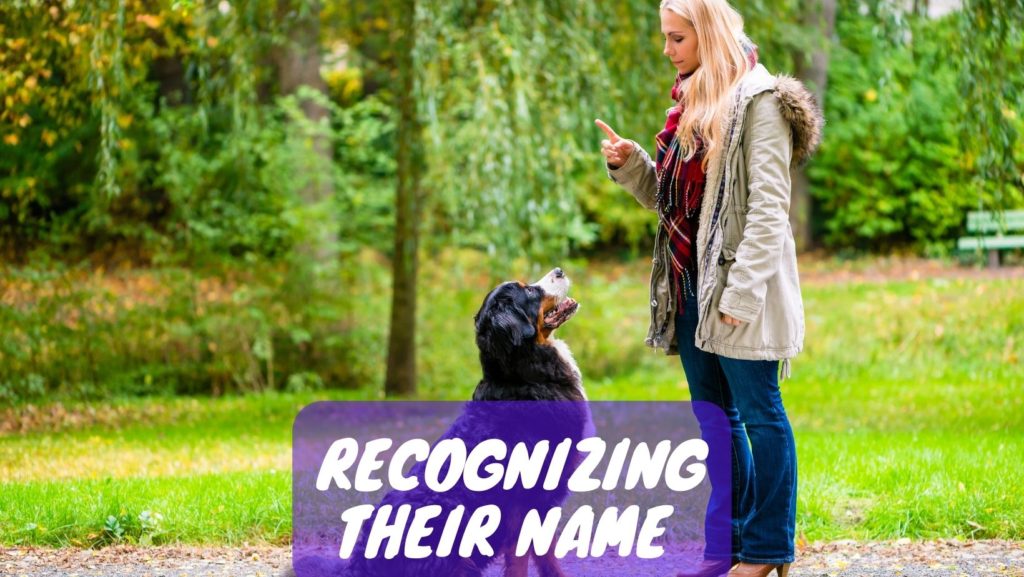
6) Recognizing Their own Name [12 Weeks ]
Around 12 weeks of age, your puppy should begin recognizing their name, though this can vary quite a bit from dog to dog.
To help it happen sooner rather than later, call your dog only by their name for the first few weeks after they come home and save their nicknames until later.
Once your dog has learned their name and responds to it consistently, you can start shaking things up with cute nicknames.
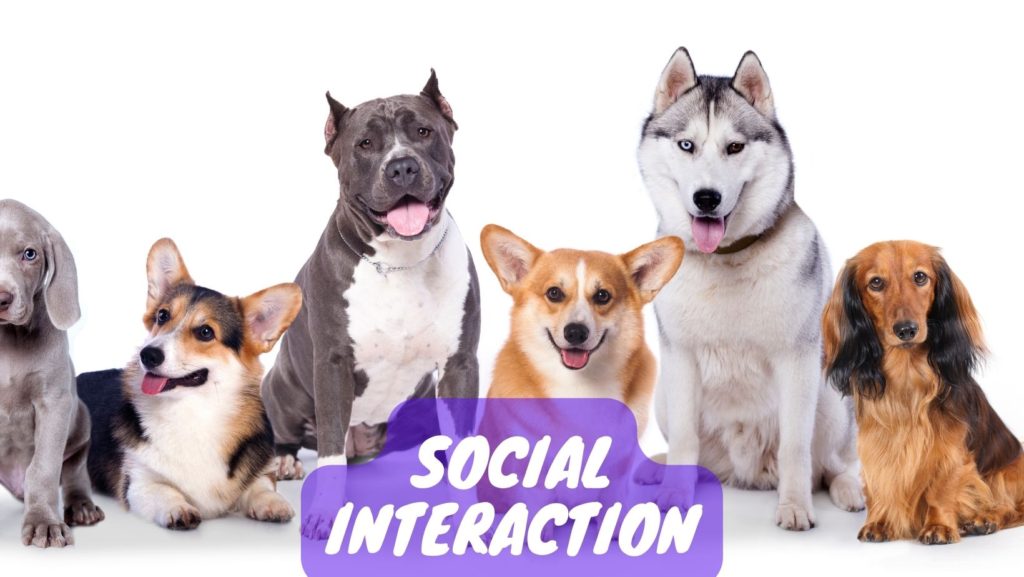
7) First Interaction with Other Dogs (12-16 Weeks)
Once your puppy has their first vaccinations (around week eight), then they are all set to begin interacting with other dogs outside of their littermates.
Early socialization is key to preventing issues from cropping up later on. It’s best to hold off on dog parks until your puppy learns more socialization cues, but puppy classes and playdates are a great option to help your puppy spend time with other dogs.
You can also do one-on-one meet-and-greets with friends’ or family’s dogs if you know the older dog will be easy-going with a rambunctious puppy.
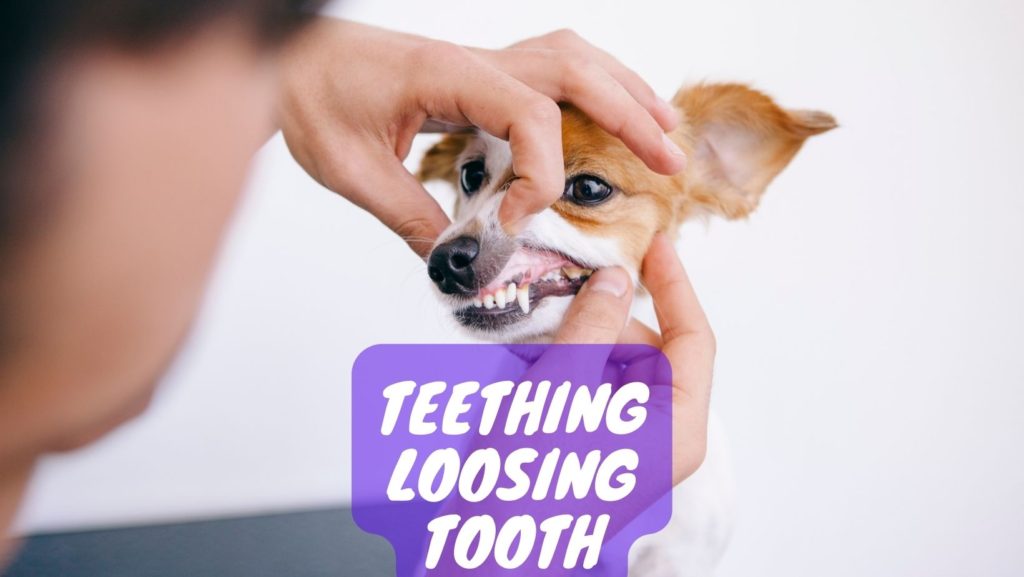
8) chewing,Teething, and losing a tooth
Puppies lose their teeth just like human babies do. Their milk teeth start to fall out around month four, and they should have all their adult teeth by month seven.
Brace Yourself for lots of teething in the meantime, and don’t leave anything out that you don’t want them to chew on.
Don’t be surprised if you don’t find any lost baby teeth lying around.
They’re so small that most dogs just swallow them and then poop them out.
Once their adult teeth fully come in, start getting your puppy used to regular tooth brushing and dental treatments.
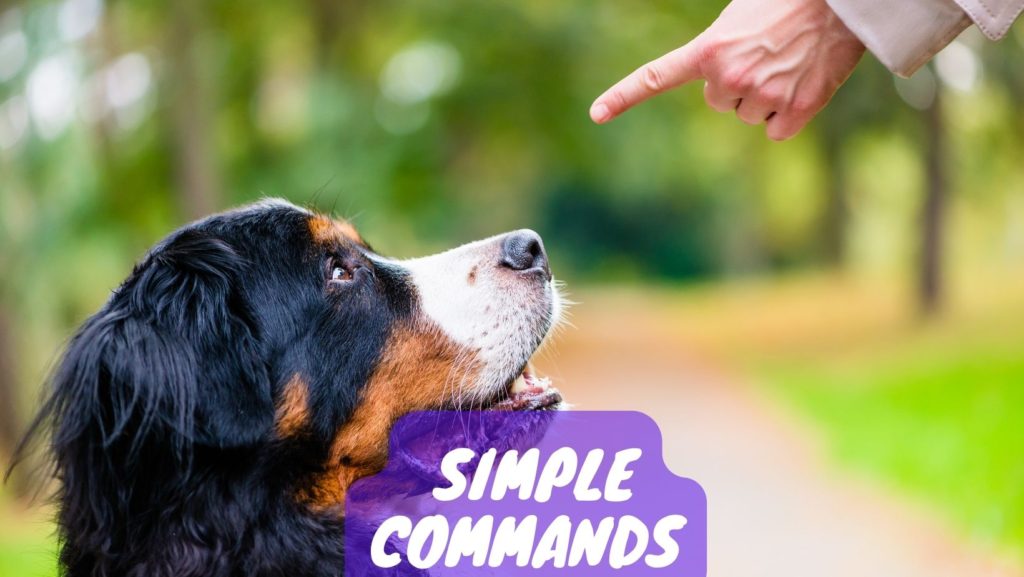
9) Simple Commands: Puppy class (20 Weeks)
Your dog can start learning simple commands as soon as you bring them home around eight weeks, although they probably won’t stick until your puppy is old enough to retain information — about the same time they learn their name, so 12 weeks.
The earlier you start training with simple commands, the better your dog will retain them!
Once your dog remembers their name, you can start pairing it with commands to further reinforce them.
10) Growth Stage (Genetics and Breeds)
Your Pups growth rates may vary Depending on what breed are they; is it a pure breed or Mix and many factors.
Terrier puppies grow the fastest, with Great Dane and giant breeds growing the slowest. Small, toy and medium breeds usually stop growing by 6-12 months old.
When purpose-bred for specific tasks, like protecting livestock or hunting, the breed standard is predictive of size.
However, mixed breeds (like Irish Wolfpards) may contain genetic material from other breeds which are not in their ancestral background.
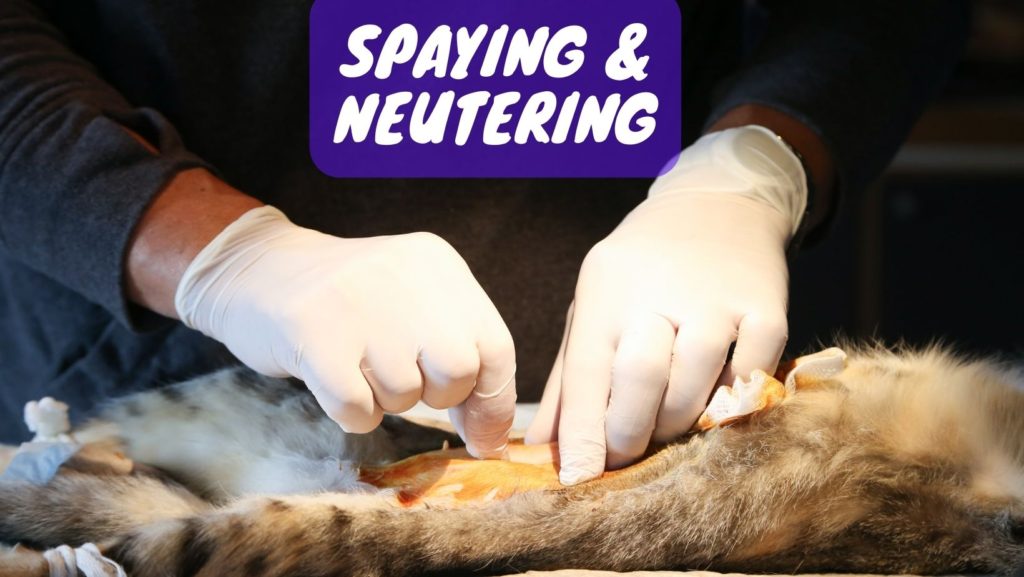
11) Spaying and Neutering [24 Weeks]
Dogs usually reach sexual maturity around six months, and most vets recommend waiting until the six- to nine-month mark to get your dog spayed or neutered, especially if they are a larger breed.
This allows their skeleton to mature and grow to its full size before the procedure takes place.
Talk to your vet about the best time to check your puppy in order to prevent accidental litter.
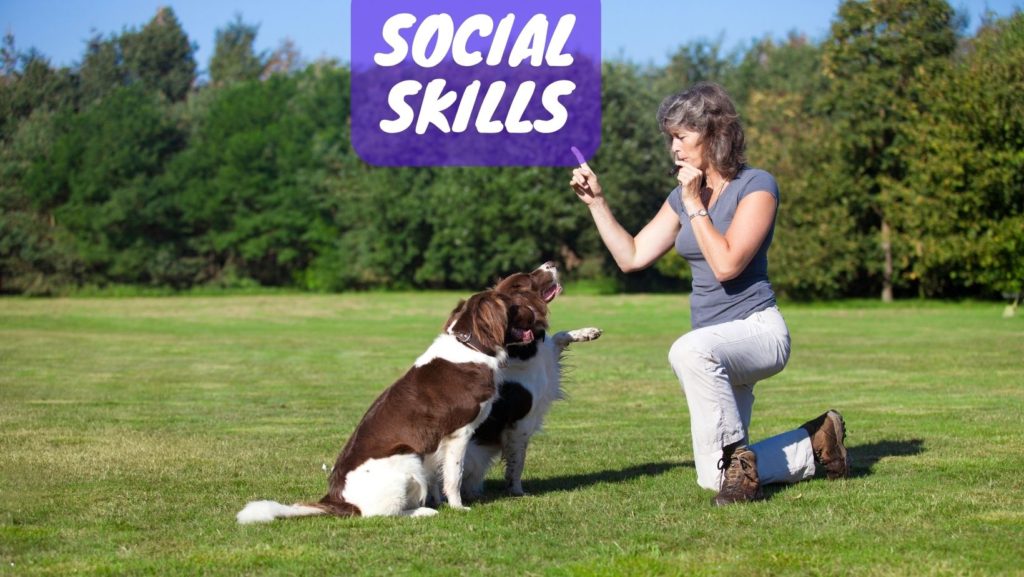
12) Training and Socialization Skills
Your puppy’s readiness for a training class depends on its energy level and socialization skills.
Most dogs are ready to go to an official class somewhere between the five- to the eight-month mark.
If you can afford the time and expense, an obedience class can make a huge difference in your dog’s life and make things easier on both of you in the long run.

13) Finally, First Year Birthday
Your puppy made it to its first birthday and met all these milestones along the way, so it’s time to celebrate!
Consider throwing them a party at the local dog park with all their canine friends and making them a dog-safe cake.
If they get overwhelmed by large groups, you can keep things low-key at home with just the two of you and a special treat like a bully stick for dogs.
The important thing is to give your dog plenty of love and attention today and for many years afterward!
Your puppy’s first year of life is extremely eventful, not to mention a critical time for their development and training.
Keep these milestones in mind as your puppy grows, and enjoy their puppy childhood while it lasts!
- You May Also Like To Read
- 10 Mistakes to Avoid While Training Your Dog
- Positive Reinforcement Training for Dogs
- How To Train Your Dog For Outing: Picnic With Pets
- Top 10 Best Dog Training Books in 2022
- Top 8 Easily Trainable Dog Breeds

